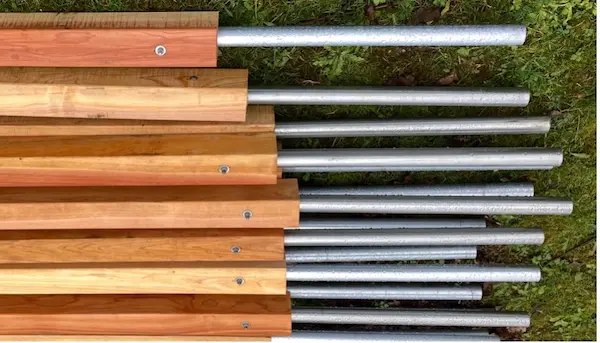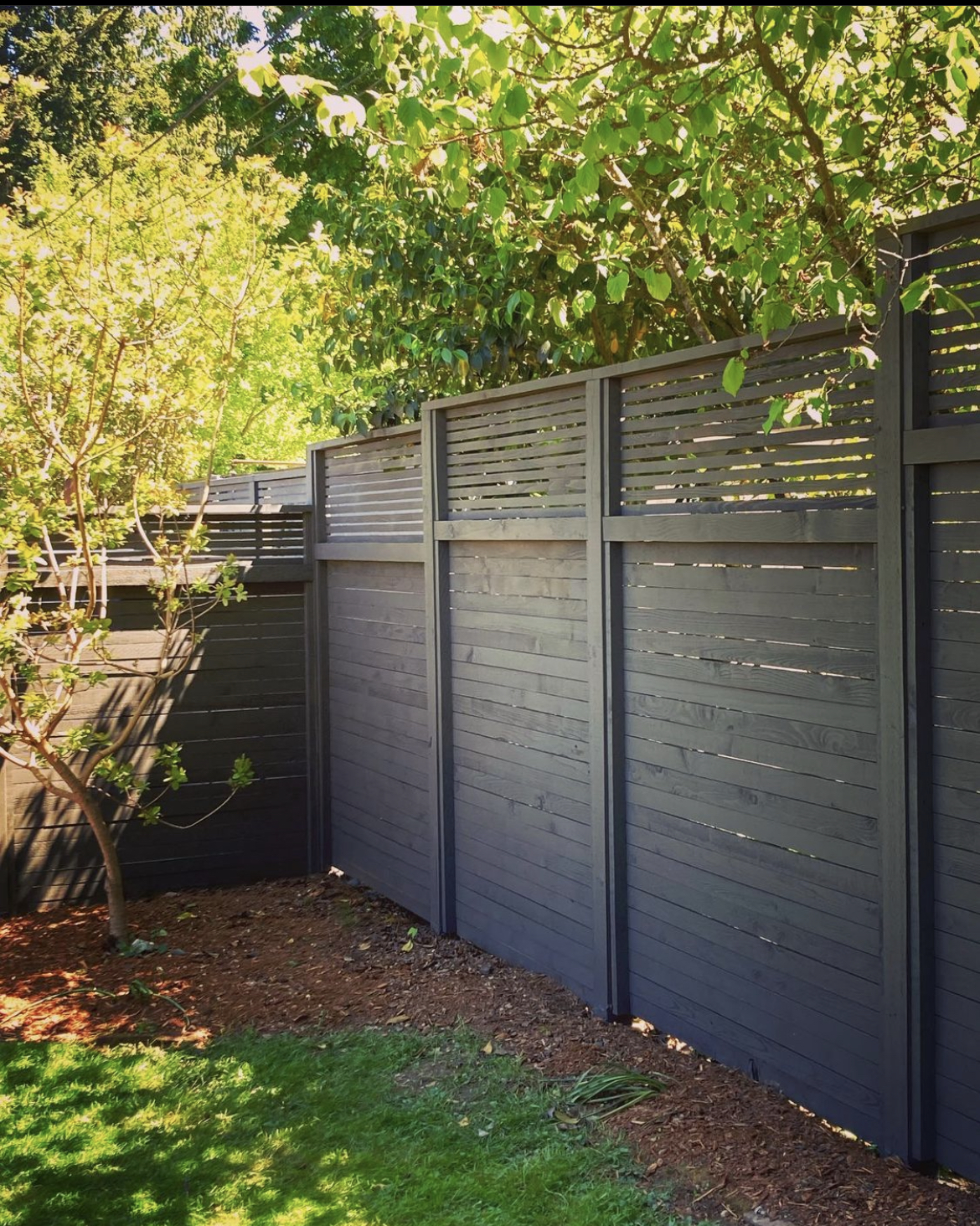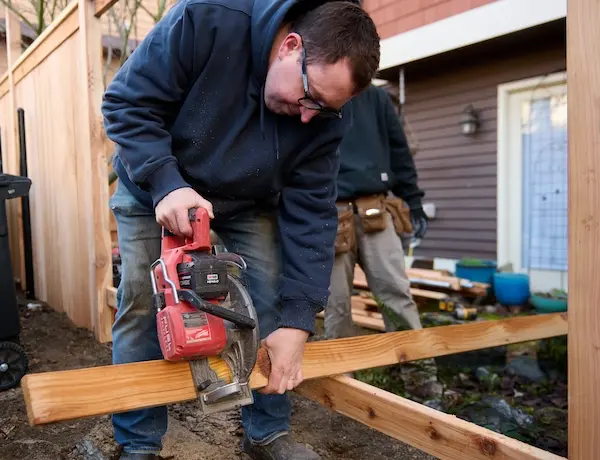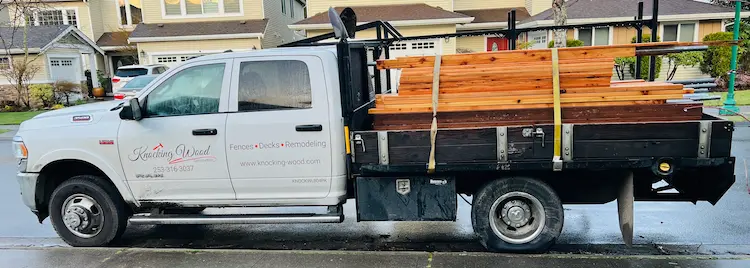When it comes to installing a new fence in the Emerald City, understanding Seattle fence cost is crucial for budgeting and planning. Whether you're looking to enhance privacy, boost curb appeal, secure your property, or simply define your outdoor space, fencing can be a significant investment. Seattle's unique climate, with its rainy winters and temperate summers, also plays a role in determining the best materials and designs for your fence. However, one common mistake homeowners make is thinking they can save money by purchasing materials themselves. In this post, we'll break down the costs of fencing in Seattle, highlight why DIY material sourcing can backfire, and help you make an informed decision for your project. For expert guidance and quality craftsmanship, consider reaching out to Knocking Wood Construction, a trusted name in Seattle for all your fencing needs.
Breaking Down Seattle Fence Cost
The cost of a fence in Seattle varies depending on several factors, including the materials, design, size of your property, and any additional features you choose. Seattle's diverse neighborhoods, from the sloping hills of Queen Anne to the flat lots of Ballard, can also influence the complexity and cost of installation. Here's a closer look at what you can expect when budgeting for your fence:
Cedar Fencing: A Popular Choice for Seattle

Cedar is a go-to material for Seattle homeowners due to its natural beauty, durability, and resistance to the Pacific Northwest's wet climate. This wood is particularly well-suited for the region's damp conditions, as it naturally repels moisture and resists rot. However, Seattle fence cost for cedar can fluctuate significantly based on the grade of the wood. On average:
- Cedar fence pricing ranges from $40 to $90 per linear foot (as I am writing this in March, 2025), depending on the quality and grade of the material.
- Lower-grade cedar might save you upfront, but it may not last as long in Seattle's damp weather, leading to higher maintenance or replacement costs down the line. Higher-grade cedar, while more expensive, offers better longevity and requires less upkeep, making it a worthwhile investment for many homeowners.
At Knocking Wood Construction, we source only the highest-quality cedar to ensure your fence stands the test of time, providing both beauty and durability for your Seattle property. To learn more about cedar fence grades, post on pipe, fence boards in our fence post→
Fancy Pants Features: Customization Adds Up

Seattle's unique topography, with its iconic slopes and hills, often requires custom fencing solutions. Add in stylish upgrades, and the price can climb. Whether you're adding a gate for easy access, lattice tops for a decorative touch, or custom curves to accommodate a sloped yard, these features can elevate both the functionality and aesthetic of your fence. Here are some common add-ons and their costs:
- Gates, lattice tops, or custom curves for sloped yards can range from $150 to $3,000, depending on complexity and materials.
- A basic gate might cost a few hundred dollars, but a custom design, heavy-duty gate for security, or an automatic gate for convenience can push the price into the thousands.
- Lattice tops can add privacy and charm, while custom curves ensure your fence fits seamlessly into Seattle's hilly landscapes.
These features can make your fence stand out, but they also require precise measurements and expert installation—something Knocking Wood Construction specializes in. Our team ensures every detail is perfect, from custom gates to sloped-yard solutions.
Why Buying Materials Yourself Can Cost More Than You Think
It might seem like a savvy move to head to your local home improvement store and buy fencing materials yourself. After all, you're cutting out the middleman, right? Unfortunately, this approach often leads to unexpected expenses, delays, and headaches. Here's why sourcing materials yourself can end up costing more than hiring a professional like Knocking Wood Construction:
1. Retail Prices vs. Wholesale Pricing
When you buy materials yourself, you're paying retail prices, which are typically higher than what contractors can access through their supplier networks. Fencing professionals often have long-standing relationships with wholesalers, allowing them to purchase materials at a lower cost. By sourcing materials yourself, you might end up spending more on the same cedar boards, posts, or hardware. At Knocking Wood Construction, we leverage our industry connections to secure wholesale pricing, passing those savings on to you.
2. Risk of Buying the Wrong Amount
Fencing projects require precise measurements, and it's easy to underestimate (or overestimate) the amount of material you'll need. If you buy too little, you'll delay the project as you scramble to order more, potentially halting work and frustrating your contractor. If you buy too much, you've wasted money on materials that won't be used, and returning excess supplies can be a hassle. Knocking Wood Construction takes the guesswork out of the process, using our expertise to calculate exactly what's needed, saving you time, money, and stress.
3. Delays Can Be Costly
If your project is delayed because you didn't buy enough materials or purchased the wrong items, you might face additional labor costs. Most contractors charge hourly rates for labor, and if they need to return for a second trip due to missing or incorrect supplies, those rates can quickly add up. In fact, the cost of extra labor often far outweighs any perceived savings from buying materials yourself. Delays can also disrupt your schedule, leaving your yard unfinished and exposed for longer than planned. With Knocking Wood Construction, our streamlined process ensures timely completion, avoiding costly delays.
4. Quality Control Issues
Not all fencing materials are created equal, and it can be challenging to determine the quality of cedar or hardware as a layperson. Contractors know which grades of cedar are best suited for Seattle's climate and can source materials that meet both durability and aesthetic standards. If you accidentally buy low-quality materials, you could face higher maintenance costs, premature wear, or even need to replace the fence sooner than expected. Professionals also ensure that all materials comply with local building codes and regulations, which vary across Seattle neighborhoods. Knocking Wood Construction guarantees top-quality materials tailored to Seattle's unique conditions.
5. Hidden Costs of DIY Sourcing
Beyond the direct costs, there are hidden expenses to consider when sourcing materials yourself. For example, transporting heavy cedar boards or metal posts requires a suitable vehicle, and you may need to rent a truck or pay delivery fees. Storing materials on your property before installation can also be problematic, especially if you don't have adequate space or protection from the elements. Wet or damaged materials can become unusable, further increasing costs and delays. With Knocking Wood Construction, we handle all logistics, from sourcing to delivery, ensuring your materials arrive safely and on time.
The Bottom Line: Let the Pros Handle It

When it comes to Seattle fence cost, the upfront price is just one piece of the puzzle. While buying materials yourself might seem like a way to save, it often leads to higher expenses, project delays, and unnecessary stress. By hiring a professional fencing contractor like Knocking Wood Construction, you benefit from:
- Access to wholesale pricing on materials, saving you money upfront.
- Expert calculations to ensure the right amount of supplies, avoiding waste or shortages.
- High-quality materials suited for Seattle's climate, ensuring durability and longevity.
- Efficient installation that saves time and avoids costly labor fees.
- Peace of mind knowing your fence complies with local regulations and meets your needs.
So, before you load up your cart with cedar boards and hardware, consider the true cost of DIY material sourcing. Investing in a professional fencing service like Knocking Wood Construction not only ensures a smoother process but also delivers a fence that stands the test of time—rain or shine.
